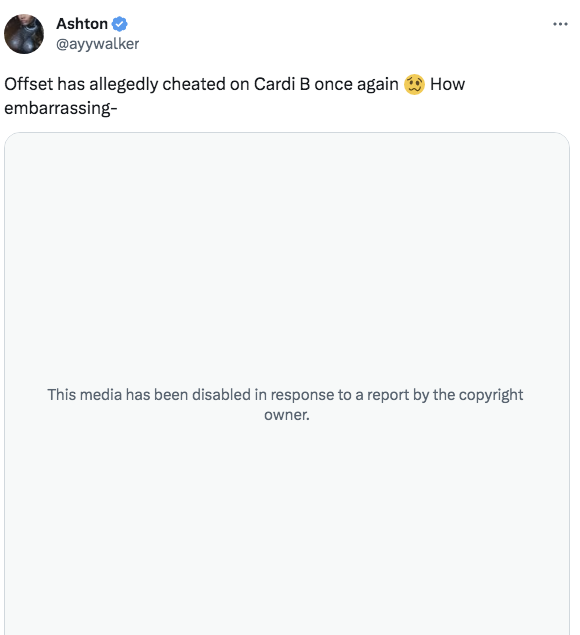Cardi B has threatened to take X (formerly Twitter) to court after she claims the social media platform is spreading lies about her husband cheating on her.
On Monday, the Bronx native blasted a social media user for posting fake images and AI-generated audio of Offset. She also says that she has personal information about the user, who uses the handle @ayywalker, and claims she will take legal action against them.

The video purports to show Offset trying to link up with another woman behind Cardi’s back. The video also has a fake voice memo attached to it with a caption that reads: “Offset has allegedly cheated on Cardi B once again. How embarrassing.”
In late July, Cardi subpoenaed blogger Tasha K’s husband, demanding that he list all of his financial assets.
In documents obtained by HipHopDX, the mother of two’s legal team is ordering a “subpoena duces tecum” on Cheickna Kebe. The documents were served on June 18.
A subpoena duces tecum is a “type of subpoena that requires the witness to produce a document or documents pertinent to a proceeding,” according to the Legal Information Institute.
The order, set to take place on Aug. 7 in Miami, would allow the Money star to evaluate all financial assets of Tasha K and her husband while recorded on video. The assets will also show on Tasha K’s bankruptcy filing, drafted in May.
“The examination may continue from day to day until completed,” according to the court document. “If the examinee receives this notice less than 14 days prior to the scheduled examination date, the examination will be rescheduled upon timely request to a mutually agreeable time.”
The subpoena duces tecum continued: “The filing of the case imposed an automatic stay against most collection activities. This means that creditors generally may not take action to collect debts from the debtors or the debtors’ property. For example, while the stay is in effect, creditors cannot sue, garnish wages, assert a deficiency, repossess property, or otherwise try to collect from the debtors.”
“Creditors cannot demand repayment from debtors by mail, phone, or otherwise. Creditors who violate the stay can be required to pay actual and punitive damages and attorney’s fees. Under certain circumstances, the stay may be limited to 30 days or not exist at all, although debtors can ask the court to extend or impose a stay.”
